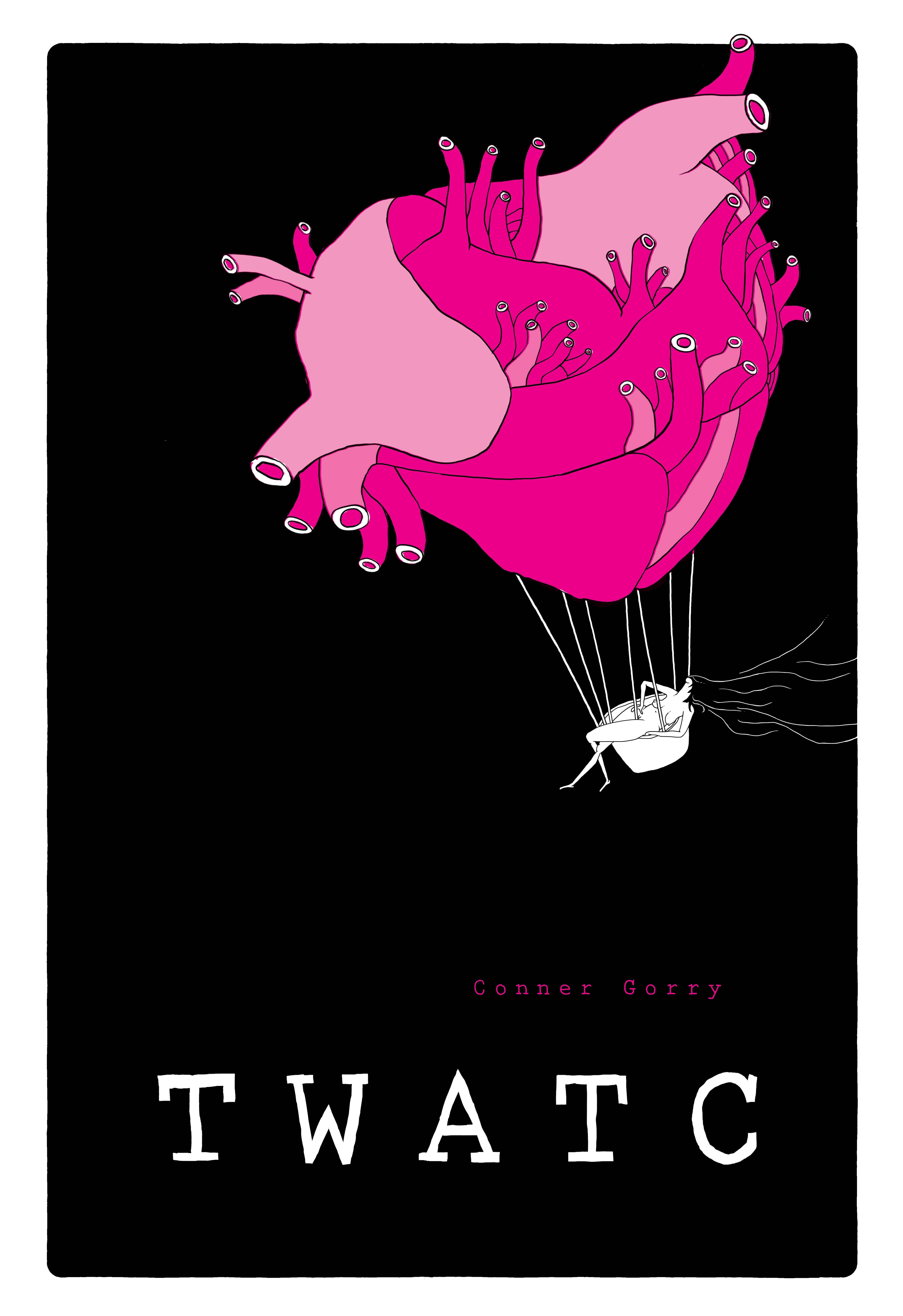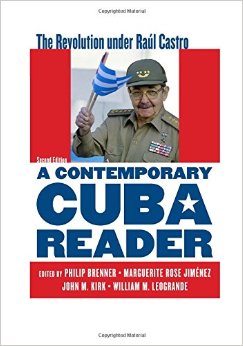[tweetmeme source=”connergo” only_single=false]
It was Sunday and it seemed like the whole neighborhood was out getting their coffee and Times. When we entered the bagel store – a cubby hole joint so Jewish it’s closed on Saturdays – a scrum of hungry New Yorkers clustered around the display case of smears. They may have had sleep in their eyes, but these natives had sharp elbows; both safety and common courtesy required we not cut in front of anyone. But where was the front? Where was the “line?”
“We have to start implementing el último here,” my sister said as we loitered awkwardly on the fringe of the amorphous mass.
“Who’s last in line?!” I boomed to everyone, no one and someone – exactly who, I wasn’t sure. Once I had my answer and we knew where we stood, I dedicated myself to studying which of the 57 juices for sale struck my fancy.
—–
El último is an institution and key survival skill on this side of the Straits. It’s one of those inventive measures that is at once simple and brilliant – in short, pure Cuban.
I don’t need to tell you that lines here can be long. It’s an enduring cliché of the one party state and waiting on those lines is a daily reality for me and my neighbors. Mastering el último, therefore, is obligatory.
Here’s how it works: when you come upon the scrum at the bank/bus stop/ice cream parlor/bakery, the first thing you ask is ‘¿quien es el último?’ Who’s last in line?
We accomplish a lot with these four words. Everyone knows immediately the line’s sequence which instills instant order to an inherently disorderly affair, plus it allows us to abandon the line concept altogether. Once you know who you follow by taking the último, and once someone shows up to take the último from you, there’s no need to actually stand in line. The system gives us the freedom to disperse and loiter, catch some shade or take a load off.
Taking and giving el último was one of my very first lessons Here in Havana (the other was never, ever trust the guy weighing your produce). I loved its elegant simplicity and how it allowed me to slip seamlessly into local practice.
It took me a bit to get the second part of el último – the part where you ask ‘¿detrás quien va?‘ Who are you behind? This follow-up phrase to who’s last in line? is every bit as important as ascertaining who you follow in the first place. Consider what happens if I take el último from you, but suddenly your lover putters up in a Polski or you get fed up and decide to walk (as if! but let’s just suppose). Your disappearing means I now have no idea who I’m behind. Your exit leaves me in the lurch, poised to screw up the heretofore well-ordered procession.
It’s common courtesy (admittedly in shorter and shorter supply these days it seems) when you’re ducking out of line to let the person behind you know. As in: ‘I’m outta here. You’re now behind the compañero in the Yankees cap.’
There are those who ignore lines here entirely. Typically they fall into two categories: Cubanos descaraos (ingrates) and pushy foreigners. Both boil down to feeling superior, like their time is more important than yours and so they’re entitled to jump the line. I know people like this. Their attitude is: ‘fuck it. I’m not waiting in line.’ I find their behavior distasteful – especially as I blow 20 minutes waiting to change money.
There are others who are just line spastic. These folks typically show up and wait patiently, but without ever taking or ceding the último, throwing a wrench into the works. My husband falls into this category (another major motivation for me to master the system as quickly as possible once I landed on these shores).
Clueless foreigners also form part of the line spastic phylum. They just don’t know, poor dears, and so screw up the system with their ignorance. With that mix of pity and paternalism with which many Cubans view foreigners (as if we are all just big inexperienced kids; as if we’ve collectively just fallen off the turnip truck), they usually just let them pass to the front of the line. They do it in good humor mostly, chalking it up to ingenuousness and our general non-Cuban state of being.
Then there are those who don’t have to take el último. These folks go straight to the front of the line like an entitled or unknowing foreigner. Women with babies and blind folk usually fall into this category and pregnant women always do. Or so I thought…
—–
It was September 2008 and Cuba had just been walloped by a duet of hurricanes. The aftermath was dramatic, the future uncertain: 10% of the nation’s GDP had been swiped away by the 193 kilometer an hour winds and it was unclear how well the country was going to pull through. It felt like that moment when the ref is standing over the boxer, sweat and blood pooling on the mat, and the crowd is holding its breath as the count goes to 3, 4, 5. Was there any fight left?
Fresh food was nowhere to be found in Havana. The agros were empty, the stalls streaked with the mud of long gone squashes and string beans, cukes and yucca. When some produce finally started dribbling into the city it was rationed: 2 pounds of plátano macho per person for instance or one calabaza a head. Lines were as long as I’d ever seen them, anywhere, anytime.
We took the último in two lines (another benefit to the system: by marking your place in this manner, you can do double duty, waiting in two lines at once, even though you need not be present in either once you give ‘el último‘) to buy our coveted one head of cabbage. Both lines crept forward. After 45 minutes, we began to wonder if the supply would hold out until our turn. We stood on tiptoes to see how many cabbages were left. We could wait all day if need be – we couldn’t remember the last time we had a fresh vegetable. ‘Will they run out?’ people were commenting around us. The line grew restless as the mound of white-green globes grew smaller.
‘¿¡El último?!‘ someone shouted from behind.
‘¿Última persona?‘ they repeated.
‘¡YO!‘ shouted a broad-chested guy dressed head to toe in white.
¿Detrás quien va?’
‘Her,’ he responded, pointing to an elderly lady with hair dyed that same purple they use to stamp meat in the States.
People on that line were quiet, too quiet. They weren’t making conversation to pass the time like nromal. It was unusually tense.
‘Seventeen people to go,’ the woman behind me whispered, counting heads with a crooked finger.
We stood there like cattle watching the cabbage mound dwindle. Some looked at their watches with the raised eyebrow and pursed lips that in Cuban means ‘Dios mío, carajo.’ The line grew tight all of the sudden, with some energetic shuffling up towards the front.
¡Embarazada!
¡EMBARAZADA!
‘Pregnant woman coming through!’ the lithe mulatta shouted as she walked to the front of the line. We looked at her. We looked at the cabbage. We could see loose leaves at the bottom of the container. The supply was dangerously low.
‘Pregnant?! My ass you’re pregnant!’ someone near me said.
He was right: she didn’t look en estado, but that’s often the case…initially. But by cutting the line, she’d crossed a line – that line dividing survival from just giving in and lying there on the mat while the ref counts 6, 7, 8…We’d been here over an hour and in strolls (supposed) mom-to-be claiming her right to forgo el último.
These Habaneros were having none of it.
¡La cola, la cola! someone shouted – did she need to be told there was a line as long as the Malecón?
‘How pregnant are you?’ another person asked – as if a woman who would lie about her gestational state wouldn’t lie about how far along she was.
‘Get to the back of the line!’ shouted another. ¡Estás collao!
While people argued with her, the cabbage ran out.
The crowd dispersed, heads hanging, plastic bags slack.











JAJAJA. It’s really funny, but it’s totally true. La cola
(the line) is a kind of institution in Cuba. There is no law to rule it, but it has rules itself and everybody know them and as you say, the most of the people respect them.
What a coincidence about Media Luna. Family names of my wife are Tablada Batista and they live in La Marina. Saludos.
I’m consulting with la familia de media luna, a ver if we have any connection. that would be weird!
What a great story! I like the idea of knowing who you’re behind and then everyone more or less honoring that system.
I was mortified when I came to Kenya for the first time, a long time ago now, and whenever I’d join a line in, say the bakery in the small town where I lived, I’d be called forward to be helped first. A left- over maybe from colonial times, but I hated it. I’d be surprised if that happens nowadays.
In Ghana a Ghanaian gentleman once brazenly moved in front of me in a photo shop, which is not at all unusual, but I just got fed up with the rudeness. I called on him, saying nicely that this was not polite behavior. He was mortified, smiling, and saying, oh, no problem, madam, please, go ahead! Ghanaians are very friendly and polite in general, but in lines, well forget it!.
I don’t even know how to respond to this post, wow… Your writing is something else!
Thanks Andi. You never fail to lift my spirits (and today I need it!)
Spectacular writing as always, I wish you’d write a book or seven about life in Cuba. I really loved the story. BTW, every year I give away one thing as christmas gifts to all I know, this year its the Great Destinations guide to Guatemala. I’ve read it twice, And I’ve never been, but in reading it I feel like I’ve been there. Now THAT’S good writing!
I’m on it J! Just need to find me an agent/publisher (which Im also working on – it’s a tough world out there in publishing!)
Aha! So you’re the one who keeps driving up sales on amazon! Thanks so much, really, for the kind words as much (more!) than the purchases. Guatemala Great Destinations was my first guidebook written from scratch for royalties so it was a bit like going from the frying pan into the fire. Guatemala is a fascinating, fun place – I recommend it to everyone.
So true, so true…
We also have lines in Spain and ask for “el último” at banks, markets, etc., so not a “Cuban thing” as such… probably inherited.
Also, you’re missing a “de” in “¿detrás quién va?” (should go between “detrás” en “quién”).
That’s my Cuban Spanish coming through!
I have never encountered el ultimo in spain, but great historical factoid!
In “Cuban Spanish” is the same, connerg…
And in “Cuban Spanish” is also “colao'” (colado = colarse), not “collao”.
I don’t know where and when you were in Spain, but try to jump the line in a market or a bank or… and see the results! lol!!
I heard Cuba had an earthquake, wondered if you were OK.
Oh so nice to have virtual well wishes/people looking after me. all quiet on the havana front. thankfully. An earthquake? the absolute LAST thing we need! thanks for writing in.
I have also seen when there is a line for the bathroom the one who really has to go gets to cut in front. I have a great story about that. I was in Trinidad a few years ago during the Semana de Cultura and Orquesta Aragón was playing in a hall so I was advised to get there early. Of course the band was late and then later still so in no time there was a raging party going. There was only one mens room so of course there quickly developed a long line and soon there were two to the toilet and someone else using the sink, got pretty rank. And there was no light in there. I was waiting my turn and I noticed behind me a ways there was a fellow with no arms, I idly wondered how a guy with no arms is able to pee. My turn came and as I went in he was all of a sudden right behind, implementing the higher need clause in lines. As the door shut and the room went dark we gathered around the toilet and my question was answered, in order for a man with no arms to pee he needs a really good friend, his buddy unzipped him and off he went. Well a man with no arms can’t aim either so he was peeing all over the place. By this time I’m laughing so hard I had to just get out of the way and leave. The band was great.
file this under….And Now for Something Completely Different!
As I always say – never a dull moment in Cuba
BTW – my mom is one who frequently has to jump the bathroom line. These folks always get a pass in my book (and especially if they have no arms!)
Hey Conner-
Have you suspended me for Verbosity, or something?
If so I will honor your wishes and comment no more ,if I am off your mailing list.
Ole
Oye! I have no idea of what you speak! Did you hit the wrong button or something because I was wondering where you were when you dídn’t weigh in on the ultimo. If Im not mistaken, you were one of the people who suggested it as a possible post?
Yo no se. but I didn’t get this one in my inbox-Quien sabe?
And I think maybe I did suggest this topic, along with my not entirely facetious plan to start a child rental service(by the hour) so my clients could cut to the front of the cola with impunity.
Anyway I found this blog via el Yuma. so I was just wondering. A great telling, as usual. Keep it up, and get that book out rapidissimo!
Ole
Awesome post! I enjoy your writing very much.
But la cola is not always respected by the majority either – especially at bus stops where more people are waiting than can fit in the bus:
On an early sunny morning last April, while waiting for the bus to Playas del Este, I watched as la cola was broken and morphed into angry mob with every arriving bus. Still quite the enjoyable experience!
thanks soul-ful!
Yeah, that 400 bus is something else, eh? You should see the bus stops these days: PACKED. seems everyone is going to work now that there will be massive layoffs. no one wants to be next!
Pingback: The Road Test: Adventures at the DMV Part II « Here is Havana
Pingback: 20 Awesome Expat Blogs
what a great list!! check out these other blogs folks!!
Pingback: Trip Tips: Havana Independently | Here is Havana
Pingback: Lost in Cuban Translation | Here is Havana
Pingback: Best Cuba Posts Evah! (Sorta) | Here is Havana
Pingback: In Cuba, Day Three: Sexy cops, El Ultimo, UNEAC, counter-revolutionary, Malecón, Vedado « Words, mostly
great breakdown on el ùltimo Conner! Another piece of brilliant writing, such a rare thing nowadays… I’ve been going through your old posts almost religiously recently. I had started this really interesting book on Somali Pirates a few weeks back, which has been collecting dust since discovered the chronological jump-back menu on your blog. Loved the pieces on the travel agency, pacotilla, funeral tradition… and I never thought I’d be fascinated by a write up on termites and fumigation, but alas.. I’m starting to fear the eventual withdrawal once I get caught up and have to wait for the not-nearly-frequent-enough rations like everyone else who got wise to the blog earlier… there’s gotta be something we can do on the book front though, short of me pulling the plug on my career and going into publishing.. keep on keepin’ on…
Me, nudging aside tales of Somalali pirates? Maybe there’s hope for me yet! This short month of Febraury is the Big Push for Conner to find an agent and publisher, so such untempered praise and words of encouragment are coming at just the right time. [OK, that’s the first and last time in the history of Here is Havana that I’ll refer to myself in the third person]
Thanks again for reading and writing in and everyone out there in cyberspace that has been enjoying HIH like Montreal but doesn’t want to miss a post, try subscribing – you’ll receive a discreet email each time I put pen to paper (someone recently asked me if I still write with pen and paper first – I do, even with the blog). Cheers!
Pingback: Tourism: Killing the Cuban Encanto? | Here is Havana
Pingback: COVID-19 & Cuba | Here is Havana
Pingback: COVID-19 & Cuba: May, 2020 | Here is Havana
Pingback: COVID-19 & Cuba: The Good – Destination Cuba